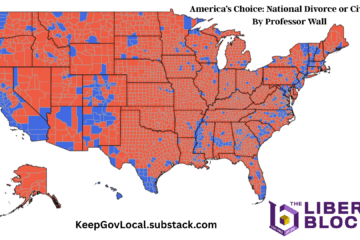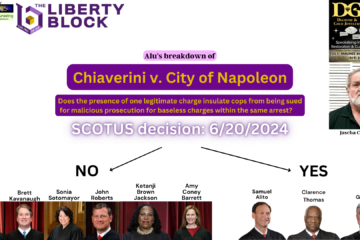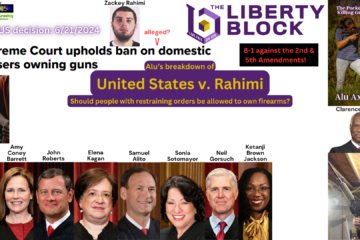Warning that automation will inevitably put millions of Americans out of work, Democratic presidential candidate Andrew Yang has successfully set himself apart from the 20+ Democrats running for the nomination. Unlike the other candidates, Yang does not seem to spend much time criticizing Republicans, or even Trump. The entrepreneur also has no political experience and speaks more sincerely than anyone else in the field. In fact, he’s perhaps the only Democrat who could honestly be seen as ‘cool’. Furthermore, he’s the only one in the field whom I could say for certain has a brain inside of his skull. His platform of socialist policies like ‘Medicare for All’ and ultra-strict gun control resembles that of a typical progressive, though he seemingly supports a universal basic income (UBI) much more strongly than the others. Unironically, Yang calls the taxpayer-funded $1,000/month no-strings-attached grant a ‘freedom dividend’, because it would “free people’s time up to work on what they really love”. Is this platform fundamentally sound, though?
Heading into 2020, the Democratic Party and all of their presidential candidates appear to agree on every one of the major policies. These include Medicare for all or universal healthcare, ever-increasing gun control, ever-increasing taxation and spending (the debt be damned), completely unrestricted immigration (though many candidates seem intent on actively importing foreigners to the US), unrestricted abortion, endless wars, endless spying, and the perpetual growth of every part of the federal government, from HUD to education to the DOT ‘infrastructure’ projects.
Inflation
Currently, the US dollar inflation rate is around 2% per year. This means that the average purchases we make grow 2% more expensive per year, meaning that our money loses 2% of its value each year. This process is called ‘inflation’ and it’s extremely complicated. One of the major factors which causes inflation is the federal government printing more money (this includes digital creation of dollars which are transferred to banks and people online and works the same way). In general, a UBI plan would likely require the government to print a few trillion dollars more per year, which would result in hyper-inflation. This would hurt Americans, especially those with savings. If inflation were to hit 5%, your $100,000 retirement savings (which is earning 0.01% interest in your 401k) would decrease in actual value by $5,000 per year. By the time you retire, your lifetime savings may not be enough to last you a single year. As inflation grows from 5% to 10% and dollars lose so much value, the economy may begin to fail, ultimately causing the US to resemble Venezuela.

Is UBI racist?
Being that Democrats seem to believe that there should be no difference whatsoever between US citizens, legal US residents, illegal US residents, and the 7 billion foreigners who might desire to live in the US, Yang’s UBI plan inherently clashes with the fundamental Democratic stance on immigration, residency, and opportunity. Democratic politicians are increasingly boasting about actively bringing foreigners into the US illegally for the express purpose of forcing YOU to pay for their welfare. If President Andrew Yang would give $1,000 per month only to American citizens, he would be excluding the millions of law-abiding, hard-working, struggling green-card holders in the US. If the program was also available to green-card holders, the entire progressive movement would destroy him for making a distinction between legal and illegal residents in the US. Ironically, the foreign nationals who hope to immigrate to the US from Guatemala, Venezuela, Mexico, and the other South American countries deserve the UBI the most! And the US citizens – who enjoy the greatest wealth and quality of life in the world – need the money the least among all four of the above groups!
For comparison, the average full-time worker in the US earns $60,000/year, while their counterparts who live in Mexico earn less than $9,000/year. Mexicans are flooding into the US because free-market, capitalist policies are better for them. According to Gallup, from 2006-2012, the median household income in the world was $10,000/year. The median household income in the US was over $43,000/year during that period, according to the poll. Gallup found that numerous countries in Africa had a median household income below $2,000 per year. Wouldn’t Yang’s money (formerly taxpayers’ money) be better used as UBI for Africans, South Americans, or anyone else in the world – especially if borders ought not to exist?

Of course, the foundational policies of Democratic politicians are inherently nationalist, racist, and hypocritical for the exact same reasons. Socialism is hypocritical by its very nature. It claims that everyone in society ought to be equal and that the people who take all of the wealth and then divide it evenly can end up super-wealthy, which is totally fine. If some people are super-wealthy (Bernie Sanders, Joe Biden, Kamala Harris, Barack Obama, and many Democratic politicians on the national stage are insanely rich) then not everyone in society is equally wealthy. Government cannot create value; it can only consume, destroy, or redistribute it. The most surefire way to guarantee that working-class citizens will be poor and unequal in wealth is to implement a socialist economic policy.
What about automation?
While Yang is likely correct that technology will render many jobs futile over the coming decades, government intervention is the single worst response to this complicated future.
Automation must decrease prices and/or increase quality, which benefits us all. A business would only replace a human worker with a robot if it benefited them in some way. We could safely assume that this benefit would come in the form of reliability, cost, or quality. If the robot were less effective than the human, the businessman would not relace the worker with the robot. Once technology does produce a robot that is efficient, reliable, and cheap enough to replace this worker, the worst-case scenario results in consumers receiving a cheaper and/or better product and businesses cutting operational costs. As for the fired employee, that one job loss would likely be made up for by the new jobs in engineering, robotics, coding, research, IT support, and countless other sectors that would come to exist in the coming decades. A few years ago, people could not have imagined that coding or working on Instagram could be such massive industries. In a few years, entirely new industries might arise that we could never even have predicted.
Even if jobs were lost, the free market is inherently the most fair, moral, and free economic system that a society could employ. No other economic system is based 100% on voluntary trade and consent of every party during every exchange. If worse came to worst, and some people really could not find work (that claim has been shown to be BS 100% whenever it’s used by politicians – there is ALWAYS work to be found) then people would still survive due to:
a) the massive abundance of resources in the US – remember; our poorest still overeat to the point of obesity and diabetes and they still have smartphones, cars, weed, cigarettes, and the newest Xbox and TV and
b) the incredible generosity of Americans – we give nearly $400 billion in charity each year.
The case for UBI
If I were tasked with debating on the side supporting a universal basic income paid for by taxation, there would be two primary points I’d focus on:
- Replacing the 100+ federal welfare programs and the millions of taxpayer-funded employees who administer the programs with a simple UBI program could save billions of dollars. This would also remove the welfare-work conundrum, which is one of the worst issues plaguing our society.
- Cutting the hundreds of billions of dollars of blatantly wasteful spending by DC politicians could go a long way to paying for UBI. Yang’s plan would cost upwards of $3 trillion, but many Americans believe that at least a few trillion dollars in government spending is not necessary. Some people actually believe that the government’s agencies do more harm than good.
Despite free-market policies allowing the American economy to grow into the most wealthy one ever seen by humanity, Yang and his Democratic colleagues wish to reverse course and make the US economy into a national socialist one. Yang believes that people don’t know what’s good for them; that politicians must intervene and plan the economy. Yang knows better than us, and he must save us from automation by first granting the politicians more power and then by using that power to tax people and then ‘give’ them back some of their money and call it altruism. Yang believes that politicians ought to make firearms illegal and he believes that politicians should extort money from every individual in order to fund infinite health insurance for everyone in the US – or maybe even everyone on the planet.


